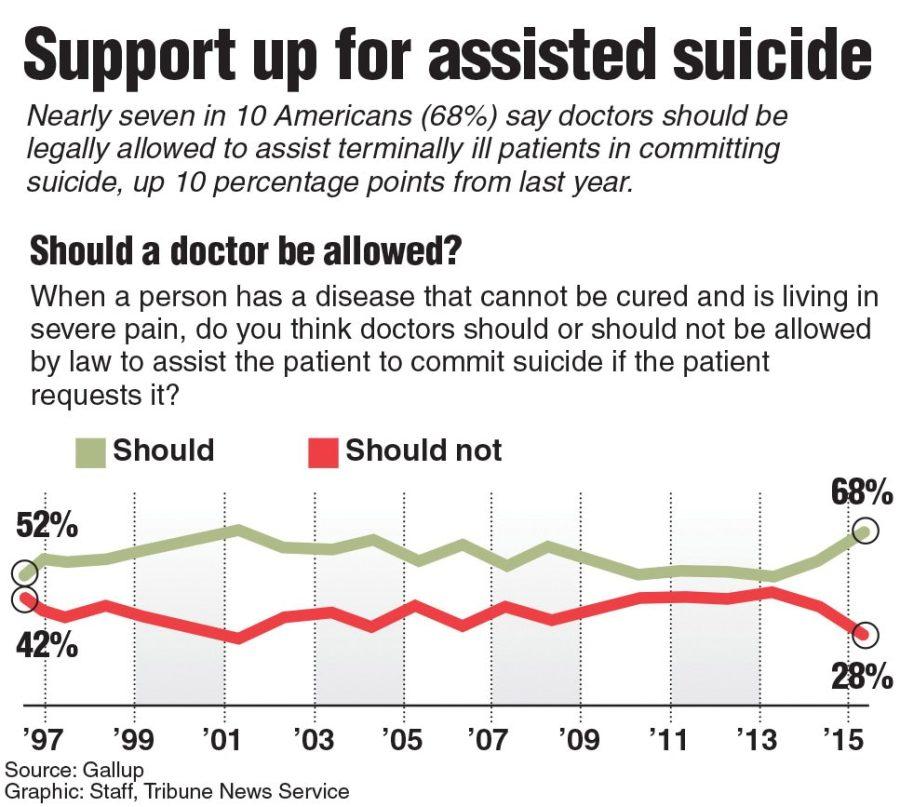California Gov. Jerry Brown signed a physician-assisted suicide bill into law last month, adding fuel to the fire for many groups fighting for similar legislation in Arizona.
California is the fifth state to pass a law concerning physician-assisted suicide. Other states with similar laws include Oregon, Washington, Montana and Vermont.
This new legislation comes in response to a large movement made by the Death with Dignity National Center. The recent movement was sparked by Brittany Maynard, who had a severe brain tumor and moved her family from the San Francisco Bay Area north to Oregon in order to be allowed the option to end her own life.
Maynard died by way of assisted death medication Nov. 1, 2014.
“I am not suicidal,” Maynard wrote in a column for CNN. “If I were, I would have consumed that medication long ago. I do not want to die. But I am dying, and I want to die on my own terms.”
Religious institutions such as the Catholic Church oppose physician-assisted suicide. The Catholic Church’s beliefs regard suicide in all forms as wrong. Being a former Jesuit seminarian student, Brown’s decision to sign the bill into law came as a surprise.
Currently Arizona does not have any laws that allow physician-assisted suicide. Any person in the state who aids in the suicide of another person is considered to be committing manslaughter and can be charged accordingly.
“With proper regulations, I think physician-assisted suicide should [be] legalized federally,” said Sierra Drake, a physiology junior.
There are activist organizations within Arizona working to have laws changed to allow physician-assisted suicide.
Maynard’s story has caught the attention of the nation. According to an Arizona assisted-suicide advocacy group, Compassion and Choices, the amount of states considering bills on assisted death increased from four to 24 in 2014.
There are, however, doctors who oppose the legalization of assisted suicide.
Dr. Aaron Kheriaty, director of the medical ethics for the University of California, Irvine, School of Medicine, told The New York Times that he is concerned patients will begin to question the motives of medical professionals once they enroll in an assisted suicide program.
Despite the hesitation of a portion of the medical professional population, there is still strong advocacy in favor of legislation passing.
“If they’re not in a mentally altered state and can rationalize what they’re doing, then they should be allowed that decision,” said Karissa Pottorff, a pre-veterinary science major.
Follow Nicholas Johnson on Twitter.









